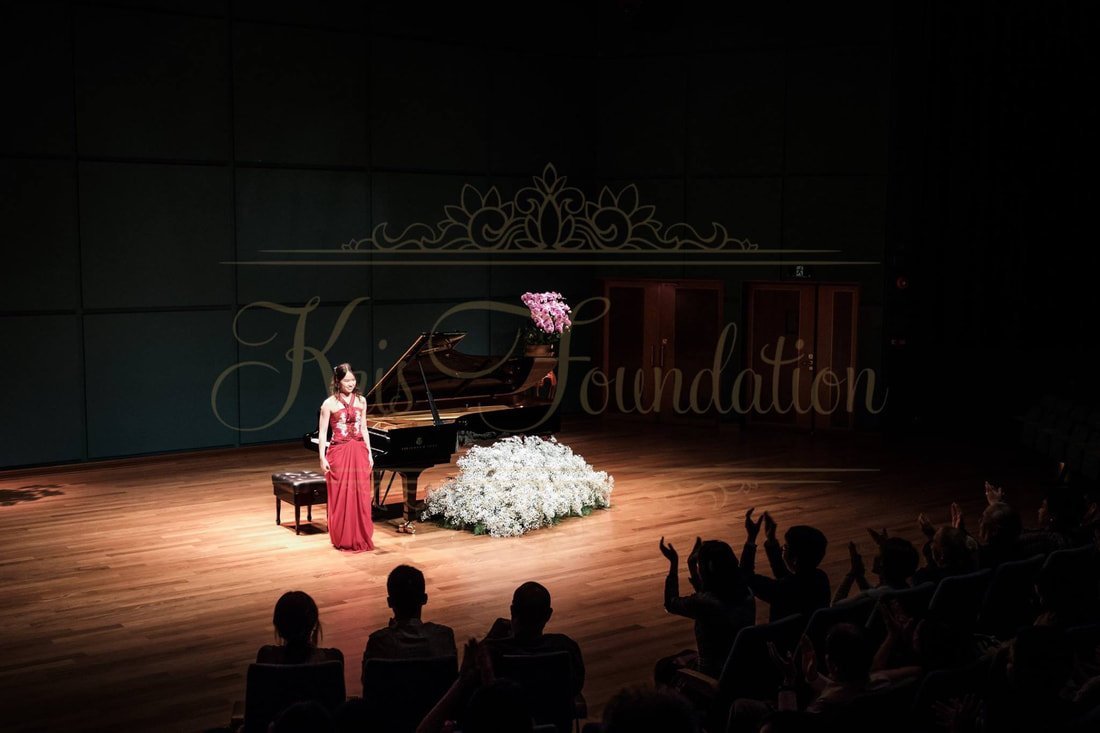
ReSounding in Singapore
Debussy: Preludes Les collines d'Anacapri (The Hills of Anacapri) and Ce qu'a vu le vent d'ouest (What the West Wind Saw)
[untitled piece tbc]
Fanny Mendelssohn-Hensel: Easter Sonata
***
Robert Schumann: Etude Variations on a Theme by Beethoven (selection)
Chopin: Fantasie in F minor Op. 49
Ng Yu Hng: The Memory Mansion at the End of Time
Florence Price: Fantasie nègre No. 2



Arts and Design Practice Research Exchange 2025 - Capturing Practice
Concert Programming ‘Diversity’ Across Locales: a pianist’s autoethnography (conference presentation)
Western classical music is experiencing unpredictable shifts in repertoire selection across concerts, musicology, and pedagogy, shaped by composer anniversaries, sociopolitical movements, and diversity quotas. While recent scholarship has addressed intersectional analysis and global perspectives (Mathias et al., 2022), the field remains largely influenced by contexts in North America, the UK, parts of Europe, and Australia. Practical discourses on inclusion have seen limited development beyond the frameworks of the 1990s (Macarthur et al., 2017). Furthermore, although performers play a central role in programming decisions (Marín, 2018), the literature has focused primarily on organisers (Gotham, 2014; Kouvaras et al., 2022) and audience experience (Pitts and Price, 2021).
In this paper, I examine two approaches to programming ‘diverse’ repertoire in my recent concerts in Manila and London, and how the same work(s) could be framed differently across these locales. The reciprocal relationship between writing and performance is informed by Bartleet’s (2009) model of autoethnography as a method that enables meaningful engagement with a musical tradition fraught with issues. Building on earlier research into performing works by women composers within Eurocentric frameworks, I now reflect on my evolving practices in relation to an ongoing re-rooting in Singapore. Rather than drawing binary comparisons between past and present selves, I approach identity as a process of becoming. In doing so, I interrogate how my working definitions of ‘diversity’ and ‘canon’ shift as situated aspects of practice, and explore how similar contextual framings might offer possibilities for decolonising approaches to pedagogy.

Morden College Merchant’s Hall: Saturday Morning Concert
Robert Schumann: Etudes in Variation Form on a Theme by Beethoven, WoO 31 (selection)
Fanny Mendelssohn-Hensel: Easter Sonata
Debussy: Prelude ‘Les collines d'Anacapri’

ReSounding in London
TICKETS
ReSounding offers two themes: voices lost to history and now revived, and the scenic and spiritual transcending musical cultures.
Debussy’s chanson populaire ushers in the languor of a Mediterranean summer. Weaving Lieder lyricism with virtuosic impulse, Mendelssohn-Hensel’s Easter Sonata pays homage to Bach. Composed in 1828, the sonata was long buried in the archives, misattributed to her brother Felix, and only received its first performance under her name in 2010. Its dramatic finale evokes the earthquake in Bach’s St Matthew Passion—an uncanny resonance with Buencamino’s Mayon, a fantasia on the Philippines’ most active volcano. The dialogue between tradition and innovation continues with Robert Schumann’s bold reimagining of Beethoven’s iconic symphonic theme, while Ng’s musical mansion contemplates time and half-forgotten memories.




ReSounding in Manila
On International Women's Day, join pianist Ning Hui See as she revives masterpieces once lost to history, and sounds stories of life, love, and identity. Written during the Mendelssohns' preparations for the Bach Revival, Fanny Mendelssohn-Hensel's Easter Sonata depicts the Passion of Christ with Romantic virtuosity. Lost to the archives and falsely attributed to her brother Felix, it was finally premiered under her name in 2010. Three works from Clara Wieck-Schumann trace her rise from child prodigy to mature artist. Inspired by Clara's own creative programming, these are woven amongst mysterious bell chimes from French composer Mel Bonis, dreams of love from American composer Amy Beach, a boat lost on the sea from Finnish spectral composer Kaija Saariaho, meditations from Singaporean composer Emily Koh, and a triumphant celebration of her mixed heritage from African-American composer Florence Price.

SG60 & Women's History Month
A recital celebrating underrated gems in Romantic repertoire. We begin with the playful Romance variée, Op. 3 from 12-year-old Clara Wieck-Schumann. A simmering, darker maturity follows with her Romanzen Op. 11 No. 2, written at a turning point in her life. Amy Beach's 'Dreaming' rises from the depths with a quote by French poet Victor Hugo, while Francisco Buencamino Sr's Mayon Fantasy portrays the active volcano in Bicol, Philippines. (We conclude with a popular Singapore song, reminding us of 'home'.)
THE PROGRAMME:
Clara Schumann: Romance variée, Op. 3
Clara Schumann: Romanzen Op. 11 No. 2
Amy Beach: 'Dreaming' from Four Sketches, Op. 15
Francisco Buencamino Sr: Mayon Fantasy

Royal College of Music London: Reception at Shangri-La
Bozza: Eugène Bozza: Récit, Sicilienne et Rondo (with bassoonist Siping Guo)
Francisco Buencamino: Mayon Fantasy
Manu Martin: Lim Fantasy of Companionship Suite for Piano, Flute and Strings Octet, Act III: Timeless